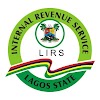Navigating the Path to Sustainable Telecom Services for Subscribers
BY DINESH BALSINGH
As Nigeria continues its journey towards becoming a digitally driven economy, reliable telecommunications services remain the backbone of our collective progress. At Airtel Nigeria, we are committed to delivering world-class connectivity to millions of Nigerians, enabling economic growth, empowering businesses, and enhancing lives. We understand that the future technology needs of the country, as ushered in by the highspeed 5G era of AI, Cloud computing, Data science applications, and Blockchain, should be directing significant investments towards building a resilient network. However, the industry faces significant challenges that require a closer look as we strive to maintain the high standards that our customers deserve.
Increased Intensity of Investments: The increasing demand for digital services across sectors such as education, media, banking, transportation, and manufacturing has come with an increased demand on telecom capacity.
Upgrading networks to deliver more data capacity is key to a sustainable future. To help ensure that the Nigerian economy keeps pace with the global improvements in technology and communications while supporting the aspirations of consumers, we also take on the responsibility of executing new technology and system upgrades as well as improved security. Data security is now more than ever a priority as more and more people upload personal information online.
All of these require significant investments which are sourced from the international markets at costs denominated in US Dollars. In the past three to four years, for instance, the dollar has gone from exchanging for about N500 to over N1,600. This more than three-fold increase in foreign exchange conversion exponentially increases the cost of investments required to run a good quality network.
In addition to this unprecedented hike in capital expenditure, the operating costs have surged dramatically, with operating expenses rising by over 300% in the last 18 to 24 months alone.
While several critical areas of the business are impacted, I would, for expediency, focus on three of those areas: Rising Energy Cost, Infrastructure Challenges, and a Commitment to Quality Service.
Rising Energy Costs: Powering telecommunication infrastructure requires significant energy resources. Energy is the single largest operating cost for running a network. With increasing global energy prices and while efforts are ongoing to fully stabilize power supply in Nigeria, Airtel Nigeria and other operators in the sector are incurring soaring costs to keep networks running seamlessly.
Infrastructure Challenges: The industry continues to grapple with rampant fiber cuts and vandalization of critical infrastructure. These incidents not only disrupt services but also demand substantial investments to repair and maintain facilities.
Commitment to Quality Service: Despite these challenges, Airtel Nigeria has remained steadfast in ensuring quality of service. From expanding 4G and 5G networks to meeting growing demand in urban and rural areas, we have painstakingly absorbed the rising costs of these obligations to avoid compromising the customer experience and ensuring Nigerians, regardless of their location, have access to mobile communication and remain connected to the digital economy.
Telecommunications operators have worked tirelessly to sustain services despite keeping tariffs unchanged for the last 10 years. While tariffs have remained static for over a decade, the economic realities necessitate a review to ensure the sustainability of services hence our recent application to the government for tariff adjustment which if approved will be a step towards addressing this imbalance. It is not a decision taken lightly but one borne out of the need to guarantee continued investment in network expansion, technology upgrades, and improved service delivery.
The telecommunications sector is pivotal to Nigeria’s ambition to become a digital economy leader in Africa. Meeting this aspiration requires operators to make substantial investments in network infrastructure, spectrum acquisition, and innovative solutions. These investments come at a cost, one that must be shared proportionally to ensure long-term viability.
At Airtel Nigeria, we remain resolute in our commitment to:
Delivering Quality Services: As the government continues to monitor operators’ compliance with service quality standards. Airtel is dedicated to surpassing these benchmarks, ensuring customers experience uninterrupted and superior connectivity.
Driving Economic Growth: By expanding our network and enhancing digital inclusivity, we are enabling the government’s economy turnaround agenda and fostering opportunities for all Nigerians.
Being a Reliable Partner: Despite industry challenges, we are steadfast in our role as a trusted partner in Nigeria’s digital transformation journey.
While significant tariff adjustments have become warranted for the sustainability of the industry, Airtel has always been sensitive to affordability and understand that the price adjustments must be done gradually to support our customers’ financial positions. We believe that an approval of revised tariffs will empower operators to invest in capacity, expand coverage to underserved areas, aim for advanced security on the networks, and improve service quality and network availability while ensuring that Nigeria remains competitive in the global digital landscape.
As we navigate the present imperatives together, we urge all stakeholders, including customers, regulators, and partners to recognize the importance of building a resilient telecommunications ecosystem. Airtel Nigeria remains committed to delivering unmatched value while supporting the nation’s economic development.
Dinesh Balsingh is the Managing Director/CEO of Airtel Nigeria.






.gif)
0 Comments